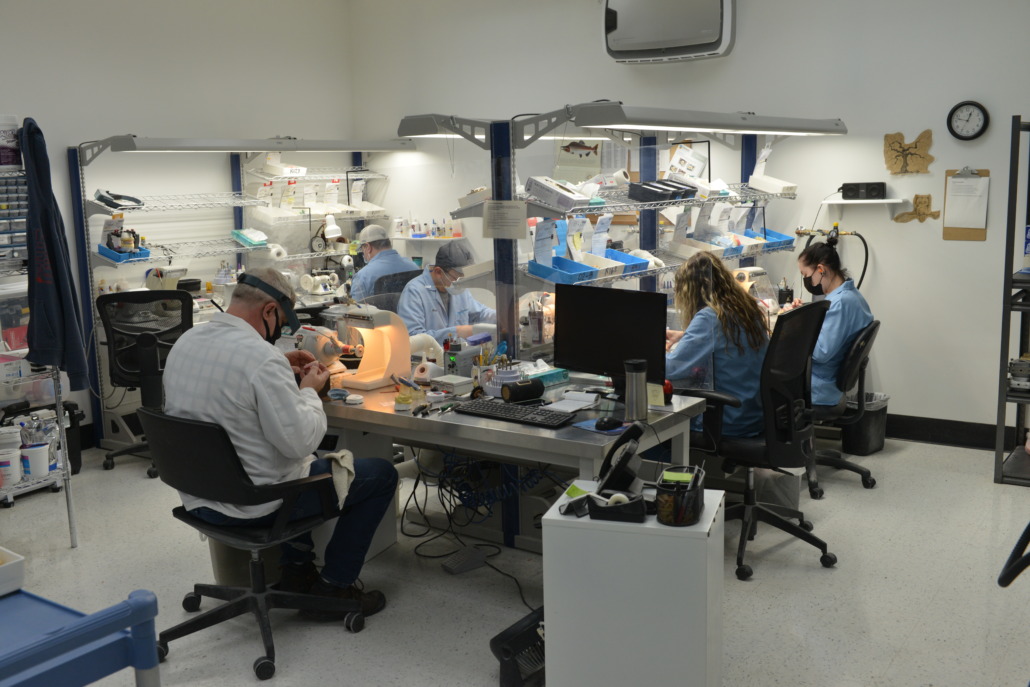Weighing the Pros and Cons of Local Dental Labs
In the ever-evolving world of dentistry, where the demand for personalized patient care and quick turnaround times is constantly rising, local dental labs are finding themselves under the spotlight. These facilities, often smaller and more personalized than their larger counterparts, present a unique set of advantages and challenges to dental professionals.

Local Dental Labs: A Personalized Approach to Dental Solutions
One of the primary attractions of local dental labs is their ability to offer a highly personalized service. But what does this mean for dentists and, ultimately, for patients?
Stronger Dentist-Lab Relationships
Working with a local dental lab often means you’re not just an account number. The proximity allows for stronger, more personal relationships to develop between dental professionals and lab technicians. This closer relationship can lead to:
- Better communication about specific cases
- Tailored solutions to unique patient needs
- Quick adjustments and collaboration
This level of interaction can significantly enhance the quality of dental appliances, ensuring they meet both the dentist’s requirements and the patient’s expectations.
Quick Turnaround Times
Perhaps the most tangible benefit of working with local dental labs is the reduced turnaround time for dental restorations. Without the need for long shipping processes, local labs can often deliver products faster than their non-local counterparts. This rapid delivery can be crucial in emergency cases or when dealing with impatient patients eager to see results.
The Challenges and Limitations
While the advantages are compelling, it’s also important to consider the limitations and challenges faced when opting for a local dental lab.
Limited Resources and Technology
One of the most significant challenges is that local labs might not have access to the same level of resources and technology as larger, more established labs. This can include:
- A smaller range of materials
- Less advanced manufacturing technology
- Limited capacity for large volumes or complex cases
For dentists specializing in cutting-edge treatments or requiring highly specialized appliances, this could necessitate partnerships with larger labs, potentially diminishing some of the convenience of going local.
Consistency and Quality Concerns
Although not a universal problem, some local labs may struggle with consistency in quality due to their smaller scale and resources. For dentists, this could mean a higher level of vigilance is required to ensure that each product meets their standards and, more importantly, their patient’s needs.
Making the Choice: Local Dental Lab vs. Larger Dental Lab
So, how does one decide whether to partner with a local dental lab or to opt for the services of a larger, potentially more distant facility? The answer lies in a careful consideration of what is most important to your practice and your patients.
Evaluating Your Priorities
- For quick turnaround and personalized service: Local labs are likely your best bet.
- For access to the latest technology, case-planning solutions and materials, regardless of location: A larger lab might be more in line with your needs.
The Value of Supporting Local Businesses
Beyond the direct benefits to your practice, there is also the broader economic and community aspect to consider. Supporting local businesses can contribute to the health and growth of your community, creating a positive feedback loop that benefits all parties involved.
The Best of Both Worlds?
In essence, the decision to work with a local dental lab or a larger entity should be guided by a balanced assessment of your practice’s needs, your patients’ expectations, and your community’s economic health.
While local labs offer unparalleled personalized service and quick turnaround times, they may not always have the same breadth of resources as larger labs.
On the other hand, larger labs can offer cutting-edge technology, case-planning solutions and materials but may not be able to match the rapid response of local operations.
Whatever choice you make, the key is in maintaining open lines of communication, ensuring that the lab you work with is fully aligned with your values and standards.
In doing so, you can harness the strengths of whichever lab you choose, ensuring the best possible outcomes for your patients while supporting the growth and evolution of your practice.



Leave a Reply
Want to join the discussion?Feel free to contribute!